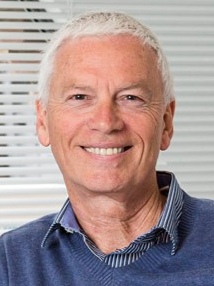Professor Robert Glen gained his Ph.D. (supervisor Prof. Peter Murray-Rust) in X-ray Crystallography, computational chemistry and Organic Synthesis from the University of Stirling. One of the highlights was the first co-crystallisation of a reactant and product of a chemical reaction in a single crystal.
As a Senior Research Scientist at the Wellcome Foundation, Robert guided the development of the Computer-aided Molecular Design group. This included Protein Crystallography (the first in a pharmaceutical company), Molecular Transport properties and Electrochemistry. Robert designed the GASP and GOLD computer programs which are used extensively in the pharmaceutical industry, is a co-inventor of Zomig (a drug for migraine) and invented two other compounds that have entered Phase-2 clinical development.
As Vice President for Collaborative Research at Tripos Inc., a biotechnology company in St. Louis, Missouri, Robert and his team created the first commercial screening library called Optiverse (100K compounds). He assisted in setting up three biotechnology companies (Arena Pharmaceuticals, Phase-1 Molecular Toxicology and Signase). Robert obtained and directed a significant BBSRC grant with University College London (discovering activators of soluble guanylate cyclise and working with The Technology Partnership to develop the Baseplate robot) and managed collaborative research and contract research in drug discovery with many large Pharmaceutical companies. Two of the research programs resulted in drugs for obesity and sleep disorders.
In 1999, Robert moved to the University of Cambridge as Founder and Director of the Unilever Centre for Molecular Sciences Informatics (over 500 publications), a new institute as part of the Chemistry department which is now the Centre for Molecular Informatics and part of the Theoretical Group. Current research includes AI/Machine Learning in chemistry/cheminformatics and discovery of new drugs for cancer and cardiovascular disease.
Robert was elected Professor of Computational Medicine at Imperial College London in 2014 and directs several groups working on Big Data projects in diverse areas such as metabonomics, clinical data analysis, bioinformatics and machine learning. He works closely with the National Phenome Centre, the Institute of Translational Medicine and Therapeutics, MedBio/HDR-UK and the Institute of Cancer Research. Research themes include ‘omics data fusion, visualisation of complex high dimensional data, clinical spectroscopic data analysis and chemistry in epidemiological studies.

